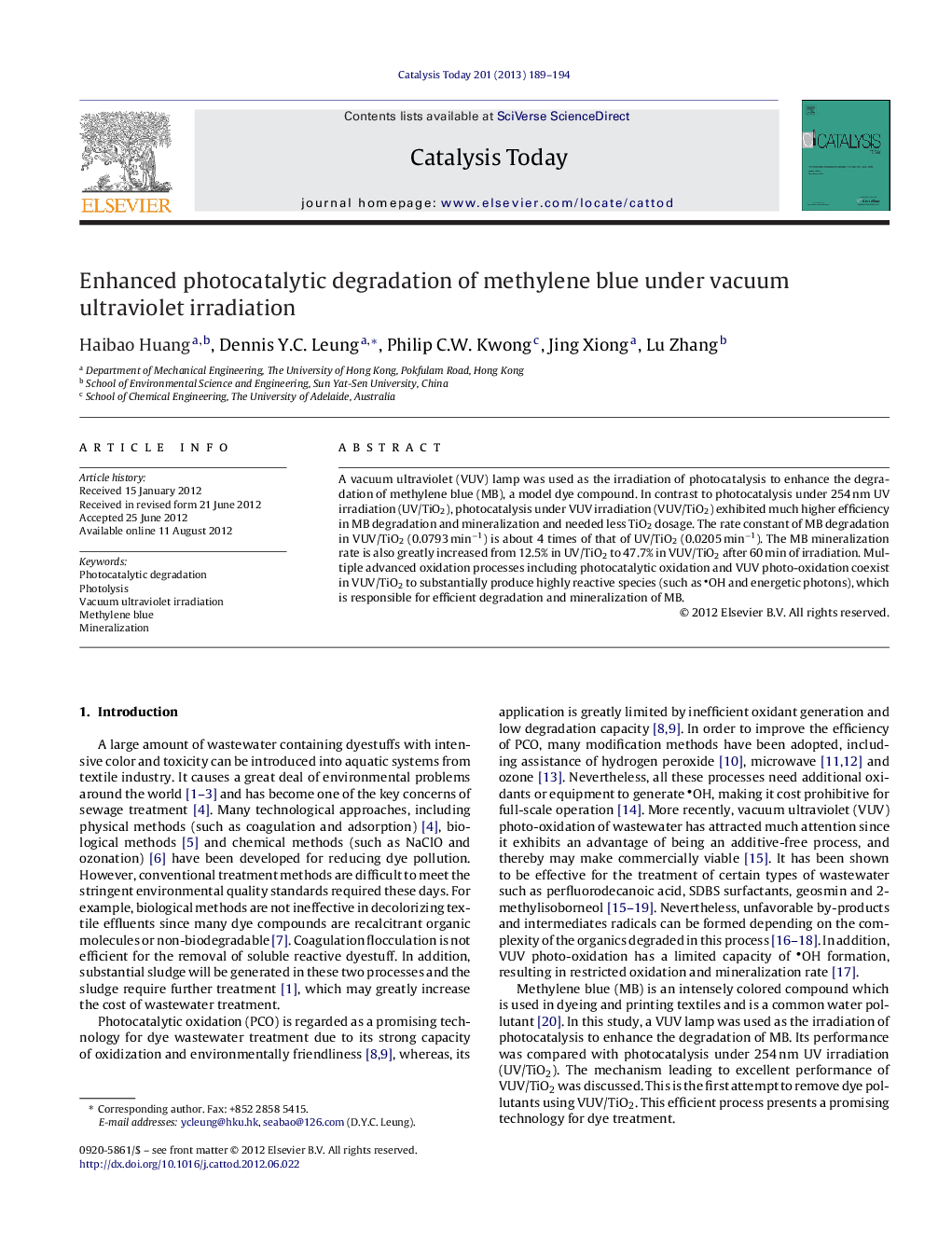| کد مقاله | کد نشریه | سال انتشار | مقاله انگلیسی | نسخه تمام متن |
|---|---|---|---|---|
| 55116 | 47040 | 2013 | 6 صفحه PDF | دانلود رایگان |

A vacuum ultraviolet (VUV) lamp was used as the irradiation of photocatalysis to enhance the degradation of methylene blue (MB), a model dye compound. In contrast to photocatalysis under 254 nm UV irradiation (UV/TiO2), photocatalysis under VUV irradiation (VUV/TiO2) exhibited much higher efficiency in MB degradation and mineralization and needed less TiO2 dosage. The rate constant of MB degradation in VUV/TiO2 (0.0793 min−1) is about 4 times of that of UV/TiO2 (0.0205 min−1). The MB mineralization rate is also greatly increased from 12.5% in UV/TiO2 to 47.7% in VUV/TiO2 after 60 min of irradiation. Multiple advanced oxidation processes including photocatalytic oxidation and VUV photo-oxidation coexist in VUV/TiO2 to substantially produce highly reactive species (such as OH and energetic photons), which is responsible for efficient degradation and mineralization of MB.
Figure optionsDownload high-quality image (110 K)Download as PowerPoint slideHighlights
► Photocatalytic oxidation of methylene blue was conducted under VUV irradiation.
► VUV/TiO2 obtains much higher degradation and mineralization rate than UV/TiO2.
► Multiple advanced oxidation processes coexist to produce highly reactive species.
Journal: Catalysis Today - Volume 201, 1 March 2013, Pages 189–194